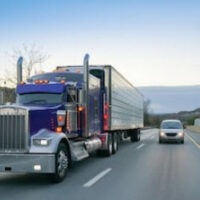Why are Truck Accidents so Dangerous?

While there is no question that the commercial trucking industry plays a crucial role in the functioning of our country’s economy, it is also true that sharing the road with trucks of such a massive size can be extremely dangerous. When it comes down to it, the large size and weight capacity of commercial trucks are simply no match for passenger vehicles, so collisions between these two types of vehicles almost always result in catastrophic injuries for the occupants of the smaller car.
Fortunately, motorists who are injured in collisions with commercial trucks through no fault of their own are often able to recover damages compensating them for their losses, so if you or a loved one were seriously injured as a result of the reckless or negligent conduct of a truck driver, it is important to contact an experienced Florida truck accident attorney who can help you file a claim.
Common Truck Accident Causes
As with any type of crash, serious truck accidents can happen just about anywhere and at any time. There are, however, certain activities and behaviors that have been definitely linked to the majority of truck accidents. For instance, truck driver fatigue is one of the most common causes of these types of collisions, as most drivers are required to work long hours and meet tight deadlines.
In an effort to prevent fatigued driving, the Federal Motor Carrier Safety Administration (FMCSA) requires truck drivers to comply with rules regarding how long they can drive in a single trip. While electronic logging of hours driven has proven helpful in allowing the FMCSA to keep track of any hours-of-service violations, fatigued driving still occurs at an alarming rate, and unfortunately, leads to thousands of accidents every year. Faulty or poorly maintained brake systems and speeding have also been linked to a large proportion of the truck accidents that occur every year.
The Dangers Posed by Blind Spots
Commercial truck drivers rely on their side mirrors much more than motorists, as there are no rearview mirrors like those on standard passenger sized vehicles. Unfortunately, because these trucks are so large, a truck’s blind spots also tend to be larger, meaning that driver visibility is generally extremely limited. Known as no-zones, these areas of a truck, which are located on the front, both sides, and the back of the truck, represent areas where the driver cannot see approaching vehicles at all. One good rule of thumb is that if a motorist cannot see the truck driver, then most likely, that driver cannot see the motorist either. Motorists should also be careful to:
- Refrain from lingering on a truck’s left side no-zone;
- Refrain from passing a commercial truck on the right side, which is the largest no-zone area for large trucks;
- Avoid cutting in front of a truck too quickly after passing;
- Remember to wait until the entire truck can be seen in the rearview mirror before changing lanes; and
- Refrain from tailgating commercial trucks.
Unfortunately, even when motorists take these steps, they could still be injured in a collision with a commercial vehicle if the driver of that truck behaves negligently by failing to maintain the vehicle, driving while fatigued, or violating a traffic law.
Call Our Legal Team Today
If you were involved in a collision with a commercial truck, it is important to contact an experienced lawyer without delay. Please call Boone & Davis at 954-566-9919 today learn more about how an experienced Fort Lauderdale truck accident attorney can help with your own case.
Resource:
fmcsa.dot.gov/regulations/hours-service/interstate-truck-drivers-guide-hours-service
https://www.booneanddavislaw.com/how-avoiding-blind-spots-can-prevent-truck-accidents/
